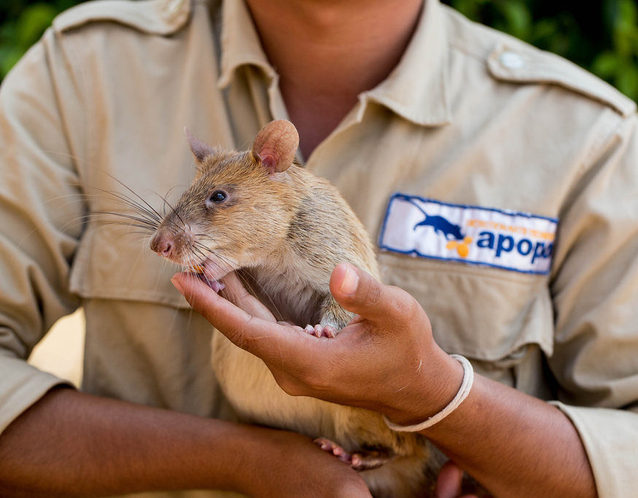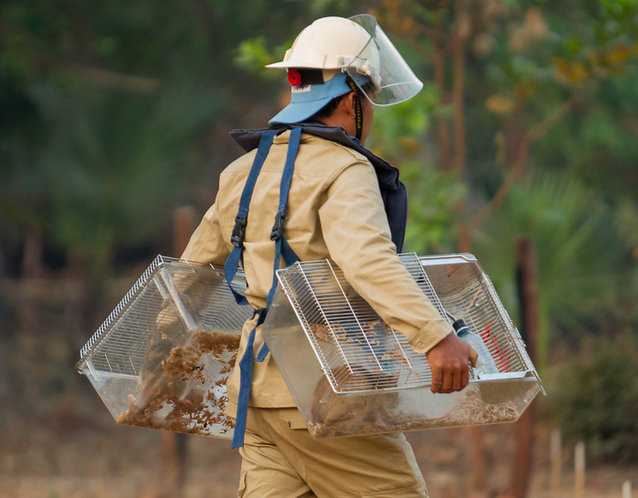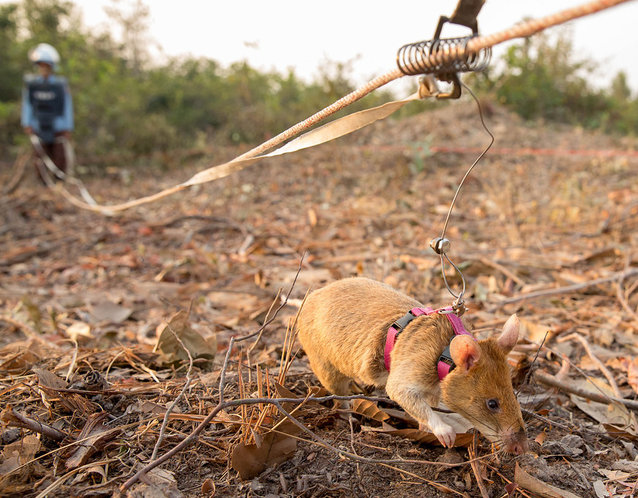


After a successful one-year pilot, the JTI Foundation is extending its partnership with APOPO, an award-winning non-profit organization, for a further three years.
Cambodia is one of the most mine-affected countries in the world. Although the long-running civil conflict drew to a close in the 1990s, around 1,600 square kilometers of land remains contaminated with landmines and other explosive remnants of war (ERW).
These pose major humanitarian and economic challenges to the local population. In addition to causing life-threatening injuries, mines and ERW contribute to food insecurity by limiting access to potentially rich agricultural land and routes to local markets. The cost of rural development projects is also increased where land first needs to be declared free of landmines.
Working in partnership with the Cambodian Mine Action Centre (CMAC), APOPO is deploying 14 certified MDR teams to help to clear and release nearly 3.2 square kilometers of contaminated land over the three-year project.
This land will be returned to approximately 600 local rice farmers and their families for cultivation. These farmers are often living in villages that are extremely poor and isolated from major development projects. Land release will result in a number of positive outcomes, including increased crop production, rising household incomes, improved food security, and improved access to public services. It could also result in a reduction in the number of people emigrating to find work elsewhere.
A further 6,000 people in the region will also benefit indirectly from the demining of public areas and rural roads.
Mine clearance is recognized by the government of Cambodia as key to achieving effective poverty reduction in rural areas, and this project will help contribute to the country’s overall development goals. The project is also aligned with Cambodia’s commitment under the Ottawa Treaty to eliminate all landmines from the country by 2020.
APOPO is a Belgian NGO with operational headquarters in Tanzania. It was originally established in 1998 in response to the global landmine problem, and specifically to address the slow pace and high cost of conventional mine clearance programs.
Over time, APOPO’s mission has grown to cover the training of rats for a variety of humanitarian ends. In addition to mine clearance, it trains rats for tuberculosis screening and Remote Scent Tracing research.